KARACHI, June 8: Research activities in the science faculty of the University of Karachi are being severely hampered by prolonged power outages caused by load-shedding as well as due to lack of an efficient and adequate electricity distribution system within the KU.
Besides being a source of frustration, loss of precious time and energy, the electricity problem is also causing huge monetary losses; costly imported chemicals are wasted as the system fails to keep them at a required temperature while the increasing fuel expenses at the departments equipped with generators are an added burden to the cash-strapped university.
The KU’s science faculty, regarded as the biggest scientific centre in the country with 23 departments and five research institutes, has no arrangements to ensure uninterrupted power supply round-the-clock, as is the case with the entire university. The exceptions, however, are the Dr A.Q. Khan Institute of Biotechnology and Genetics Engineering and the International Centre for Chemical and Biological Sciences under which five units are working: the HEJ Research Institute of Chemistry, Dr Panjwani Centre for Molecular Medicines and Drug Research, Third World Centre and LEJ digital library.
Giving a break-up of the duration of power outages at the university, a teacher living on campus said the KU daily suffered four to six hours of load-shedding; one to two hours of forced power outage by the university’s own electricity system and unpredictable power breakdowns that last from half an hour to an hour, from the KESC and the university’s distribution system.
As a result, around 600 teachers and 2,000 staff and about 22,000 students face interruptions for at least two hours in their work everyday. However, the problem is graver at the science faculty, particularly at departments of microbiology, biochemistry, pharmacy, genetics, chemistry and applied chemistry, where research is being acutely affected.
“Most of the biological and chemical departments use thermo-labile reagents which are not only expensive but also not readily available and are imported. These reagents have to be kept at either -20 or -80 degrees Celsius all the time. Frequent power failures destroy these expensive reagents and hinder research progress. If power fails in the middle of night, there is no staff at the departments to turn generators on or off. Consequently, expensive chemicals go bad,” said Prof Dr Shakeel Farooqi, Vice-President of the Karachi University Teachers Society and member of the KU syndicate, who has recently been inducted into a committee set up a year ago to address the electricity issue at the KU. Dr Farooqi is currently working at the Department of Molecular Genetics.
He also said that last year’s rains had played havoc with the varsity’s power system and the institution remained deprived of electricity for almost a week. “KU’s electricity problem has been lingering for many years. In 2003, over a dozen generators were installed at various departments, but the problem remained unsolved.”
The generators, it is said, could only be run in the morning as operators generally go home in the afternoon. Sometimes there is no fuel to run them.
According to experts, the university’s system needs immediate repairs and an upgrade apart from improved supplies from the KESC. At present, the university has six power sub-stations, which, experts say, are inadequate and the university needs at least four new ones due to the increasing load. One of them, located near the Centre of Excellence for Marine Biology, has been non-functional for a year.
“A huge fire erupted in the sub-station supplying power to four departments and the entire structure was destroyed. A new transformer had been installed a few months ago and the delay is now being caused by the university’s maintenance department, which has failed to repair the sub-station even after a year,” said a source.
Lack of planning?
Giving an insight into the problem, a source said the electricity problem became severe at the university following the installation of hi-tech scientific equipment and air-conditioners after the release of a significant grant by the government in 1999.
“From 1979 to 1999, the university had received no development funds. That means a major chunk of whatever the university was getting at that time used to be spent on salaries. In 1999, a significant grant was released to the university with the help of which many hi-tech gadgets were purchased. As a prerequisite for the proper functioning of the equipment, it was deemed necessary to install air-conditioners.
“However, when all this was being done, no thought was given to developing infrastructure for uninterrupted power supplies. Also, the generators installed in later years were without ATS (automatic transfer system) and UPS (uninterruptible power supply system) support. An ATS system could have been installed by spending only two per cent of the amount spent on the purchase of generators.”
Talking about the solutions to the power crisis, a teacher said there could be no other solution but to equip the university with a big, cost-efficient centralised power generation system. “About two years ago, a feasibility report on such a project, expected to costabout Rs220 million and meant to generate seven megawatts of electricity, had been submitted to the HEC. The project did not materialize due to lack of funds.”














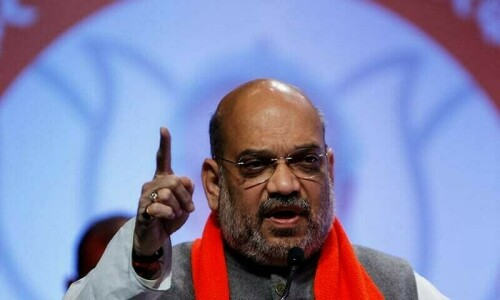
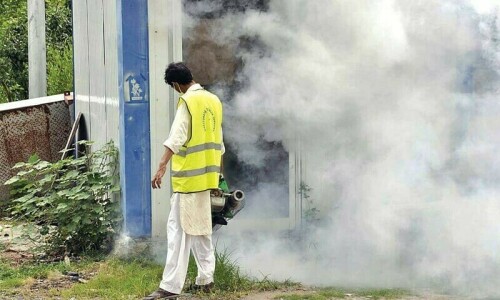
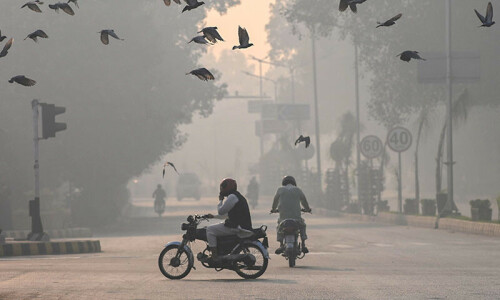

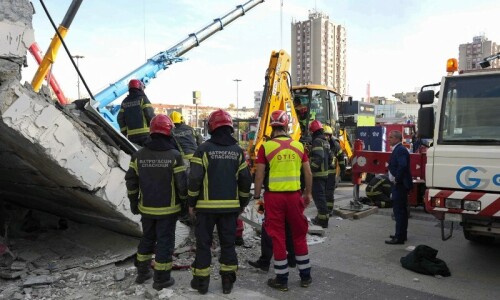






















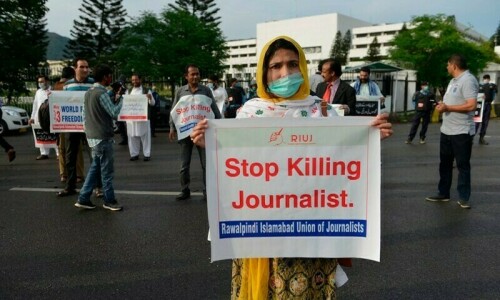


Dear visitor, the comments section is undergoing an overhaul and will return soon.